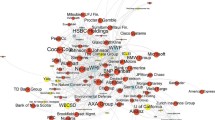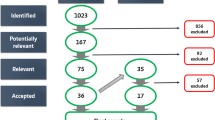Abstract
The paper discusses the coupling of non-linear non-convex damage costs due to climate change with a cost-efficiency analysis based on a technical-economic linear programming model like MARKAL and studies the implications for the computation of cooperative and non-cooperative solutions. Our empirical analysis of climate damages based on different world emissions levels and paths prove (a) that the dependency of damages on the trajectory of emissions may be neglected, so that the only relevant variables are the cumulative emissions in each country, and (b) that a linear relationship links regional damages and cumulative global emissions. Based on these results, cooperative and non-cooperative equilibria can be much more easily calculated by solving local optimization problems in a case where international trade effects of GHG policies are neglected: given the linearity of damage functions, each country chooses its non-cooperative strategy by considering only the part of its own damage cost due to its own emissions; in the cooperative case, each country takes into account its contribution to the damages done to all countries. Of course, any cost-benefit conclusion that will be produced by this approach is fully dependent on the damage functions. Also, this approach may be extended to the case where trade effects are modeled.
Similar content being viewed by others
References
J. Eyckmans and H. Tulkens, Simulating with rice coalitionall stable burden sharing agreements for the climate change problem, CORE Discussion Paper No. 9926 and CLIMNEG Working Paper No. 1, Munich, Germany (2002) 33 p.
W.D. Nordhaus and J. Boyer, Roll the DICE again: Economic models of global warming, Yale University, manuscript edition (1999).
R. Loulou and A. Kanudia, The Kyoto Protocol, inter-provincial cooperation, and energy trading: a systems analysis with integrated MARKAL models, Energy Studies Review 9(1) (1999) 1–23.
IPCC, Climatic Change 2001: Impacts, Adaptation and Vulnerability, Contribution of Working Group II to the Third Assessment Report of the Intergovernmental Panel on Climate Change (IPCC) (Cambridge University Press, Cambridge, 2001) p. 1000.
C. Carraro, ed., Efficiency and Equity of Climate Change Policy (Kluwer Academic Publishers, Dordrecht, 2000) p. 369.
F.L. Toth and M. Mwandosya, Decision-making frameworks, in: Climate Change 2001: Mitigation, eds. B. Metz, O. Davidson, R. Sawrt and J. Pan, Intergouvernemental Panel on Climate Change, Third Assessment Report, Working Group III (Cambridge University Press, Cambridge, 2001) pp. 601–677.
R.S.J. Tol and S. Fankhauser, On the representation of impact in integrated assessment models of climate change, Environmental Modeling and Assessment 3 (1998) 63–74.
W.R. Cline, The Economics of Global Warming (Institute for International Economics, Washington, DC, 1992) p. 381.
S. Fankhauser, Valuing Climate Change-The Economics of the Greenhouse Gases (EarthScan, London, 1995) p. 176.
R. Mendelsohn and J.E. Neumann, eds., The Impacts of Climate Change on the United States Economy (Press Syndicate Univ. Cambrige, Cambridge, 1999) p. 344.
R.S.J. Tol, Estimates of the damage costs of climate change. Part I. Benchmark estimates, Environmental and Resource Economics 21 (2002) 43–73.
R.S.J. Tol, Estimates of the damage costs of climate change. Part II. Dynamic estimates, Environmental and Resource Economics 21 (2002) 135–160.
IPCC, Climatic Change 1995: Economic and Social Dimensions of Climate Change, Contribution of Working Group III to the Second Assessment Report of the Intergovernmental Panel in Climate Change (Cambridge University Press, Cambridge, 1996) p. 448.
P.H. Young, Equity in Theory and Practice (Princeton University Press, Princeton, NJ, 1994), p. 238.
R.S.J. Tol, Equitable cost-benefit analysis of climate change policies, Ecological Economics 36 (2001) 71–85.
IPCC, Climatic Change 2001: Mitigation, Contribution of Working Group III to the Third Assessment Report of the Intergovernmental Panel on Climate Change (IPCC) (Cambridge University Press, Cambridge, 2001) p. 700.
P.R. Portney and J.P. Weyant, eds., Discounting and Intergenerational Equity (Resources for the Future, Washington, DC, 1999) p. 186.
W.D. Nordhaus, Expert opinion on climatic change, American Scientist 82 (1994) 45–51.
R.S.J. Tol, The damage costs of climate change: Toward more comprehensive calculations, Environmental and Resource Economics 5 (1995) 353–374.
S.C. Peck and T.J. Teisberg, Global warming uncertainties and the value of information: An analysis using CETA, Resource and Energy Economics 15 (1993) 77–97.
R.J. Lempert, M.E. Schlesinger and S.C. Bankes, When we don't know the costs or the benefits: Adaptative strategies for abating climate change, Climatic Change 33 (1996) 235–274.
H.P. Chao and S. Peck, Greenhouse gas abatement: How much? and who pays?, Resource and Energy Economics 22 (2000) 1–20.
S.H. Schneider and S.L. Thompson, Atmospheric CO2 and climate: Importance of the transient response, Journal of Geophysical Research 86(C4) (1981) 3135–3147.
W.D. Nordhaus and Z. Yang, A regional dynamic general equilibrium model of alternative climate-change strategies, The American Economic Review 86 (1996) 741–765.
N. Nakicenovic, Special Report on Emissions Scenarios. A Special Report of Working III of the Intergovernmental Panel on Climate Change (Cambridge University Press, Cambridge, 2000) p. 599.
C. Kemfert, L. Wietze and R.S.J. Tol, Games of Climate Change with International Trade. Research Unit Sustainability and Global Change SGC-7, Centre for Marine and Climate Research, Hamburg University, Germany (2001) p. 22.
Author information
Authors and Affiliations
Rights and permissions
About this article
Cite this article
Labriet, M., Loulou, R. Coupling Climate Damages and GHG Abatement Costs in a Linear Programming Framework. Environmental Modeling & Assessment 8, 261–274 (2003). https://doi.org/10.1023/A:1025503525777
Issue Date:
DOI: https://doi.org/10.1023/A:1025503525777




